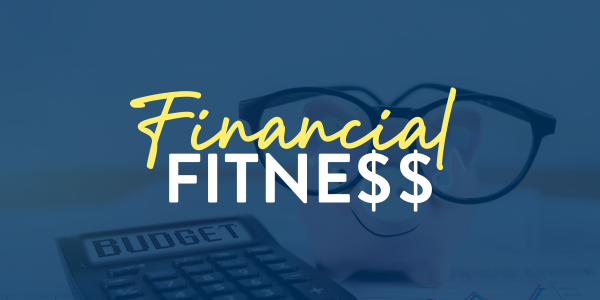
What’s stopping you from buying a home? If your lifestyle, financial goals, and plans for the future are all pointing you towards the road to homeownership, there may be one thing keeping you from starting that journey.
Affordability.
If you are one of the many would-be homebuyers who thinks affordability is keeping your dream out of reach, you may be surprised to discover how accessible homeownership actually can be.
Here’s the straight answer on what you need to buy a home, one surprising thing you don’t need, and the information you can’t afford to miss.
What You’ll Need to Buy a Home
 If you haven’t spoken to a professional mortgage loan advisor about what it takes to buy a home, you may be under the misimpression that you need a flawless credit score, a huge chunk of change saved for down payment, and make a certain amount of money before you can qualify to buy a home. But in reality, none of those things is completely true.
If you haven’t spoken to a professional mortgage loan advisor about what it takes to buy a home, you may be under the misimpression that you need a flawless credit score, a huge chunk of change saved for down payment, and make a certain amount of money before you can qualify to buy a home. But in reality, none of those things is completely true.
Here’s a little secret... lenders aren’t necessarily looking for a perfect credit score or specific dollar amount in your bank account.
When a lender is considering if you qualify for a home loan, what they are really looking for is your ability to repay your mortgage, without the risk of defaulting on the loan.
If you can show a lender that you have steady employment or other sources of verifiable income along with other adequate assets, you may be closer to buying a home than you think.
Affordability Includes: Your DTI
In addition to income or assets, a lender will consider another factor to determine if you can buy a home: your debt-to-income ratio. In other words, the amount of money you bring in each month compared to the money you spend on your total housing costs and your living expenses.
To calculate your DTI debt-to-income ratio, you will take your total housing costs, which includes your mortgage payments, interest, taxes, and insurance, and add it to your existing monthly obligations (such as loans, credit payments, and living expenses). This number is then divided by your gross (pre-tax) monthly income to determine your DTI ratio.
Different home loan programs will have varying qualifying guidelines for acceptable DTI ratios, but if you are within the acceptable range (generally 30% -43%), there is a very good chance you may be able to afford to buy a home.
Affordability Includes: Your Credit
Your credit can play a large role in your ability to obtain a home loan, but that doesn’t mean you have to have a perfect credit score if you want to buy a house. You may be surprised to find a broad range of credit scores are adequate to qualify for a home loan. If you have a higher credit score you may find more home loan programs available for you, and can most likely get more competitive interest rates. But even if you have a lower credit score, you may still be able to qualify to buy a home.
The One Surprising Thing You Don’t Need to Buy a Home
One of the biggest hurdles would-be homebuyers often face is the seemingly monumental task of saving up enough money for a 20% down payment*. Trying to save up this large sum could take years for a person who otherwise is completely qualified to buy a home. While there are benefits to being able to make a down payment of 20%, such as avoiding private mortgage insurance (PMI) payments, you may be able to buy a home with as little as 3% down, or less.
There are many loan programs, first time buyers programs, and gift fund options available to help would-be home buyers purchase a home with little to no money down. Ask your mortgage loan advisor if one of these options will work for you.
Can You Afford NOT to Buy a Home?
Homeownership may provide some pretty serious financial benefits for the average buyer. For instance, homeownership remains one of the leading avenues for building wealth for most Americans. Here are some of the ways owning a home may offer greater financial benefits to you compared to renting:
Equity
For most homeowners with a mortgage, equity increases every month. Home equity is the value of your home, minus what you owe in mortgage loans or other claims against the house. Equity grows as you make your mortgage payments and pay down your principal balance payment by payment. Your equity can also grow over time if the market value of your home increases, as well. When you write a rent check every month, you are helping someone else grow equity in their home. When you write a check to make a payment on your own mortgage, you are growing your own equity in your own home.
Tax Benefits
If you own a home, you may be able to deduct your mortgage interest from your tax obligations. For many homeowners, this can be a significant amount in the early years of homeownership when interest payment can be a large portion of the payment. Property taxes are another tax deduction that homeowners can take advantage of, as well. And when you first purchase your home, you may be able to deduct the origination point paid on your home loan, too. Buying a home can offer some pretty substantial financial benefits in the form of tax deductions that you otherwise would miss out on.
Buying May Be More Afforadable than Renting
One of the biggest benefits to buying a home is the amount of money you may be able to save compared to renting. In many housing markets, rents are increasing as much as 8% each year. And in major metropolitan areas or highly desirable housing markets with very little available rental inventory, you could be paying even more. Renters are often left paying over half of their gross income on their rent, leaving very little left over for savings, investments, or their financial future.
To determine the amount it would cost you to rent vs buy in your area, a rent vs buy calculator is a great tool to help you understand the financial benefits to buying a home.
A great way to see if you truly can afford a home is to sit down with an experienced mortgage loan advisor. Together, you and your advisor can look at what you need to qualify for a home loan, compare mortgage loan options, and map out the path that will ultimately lead you to your goal of buying a home. If the only thing stopping you from meeting with an advisor is the fear that you may not be able to afford a home, think again. You may be closer than you ever imagined.







